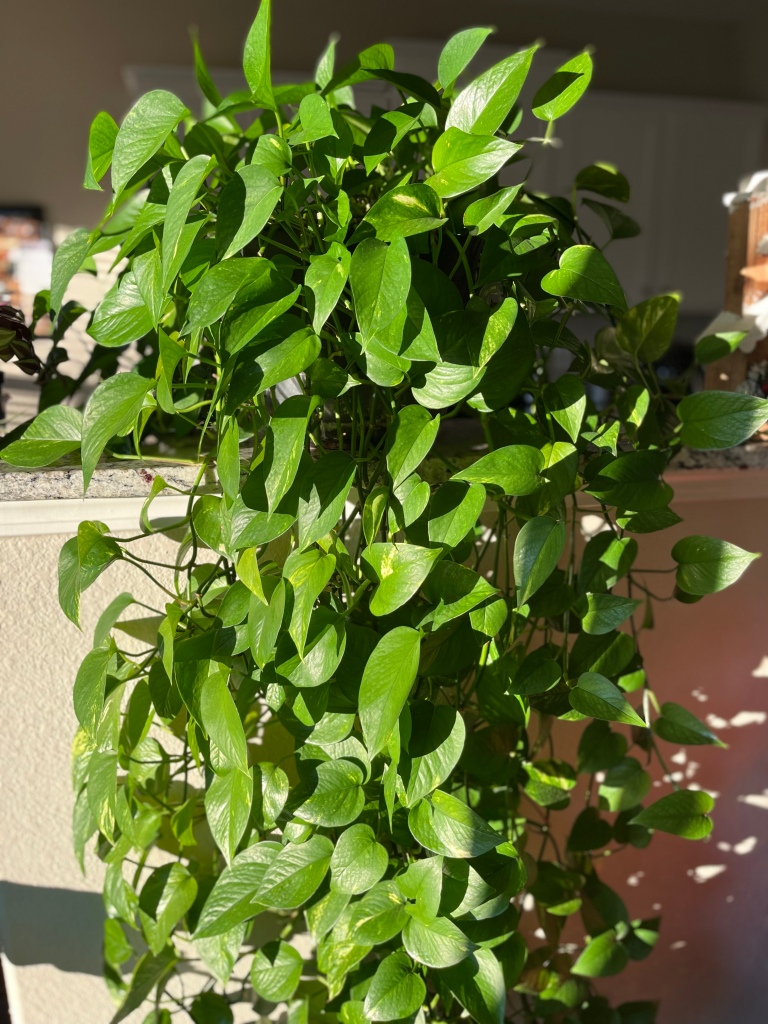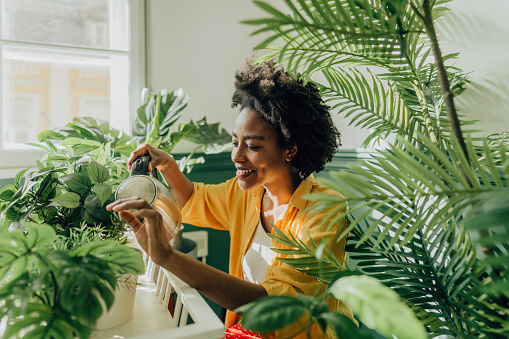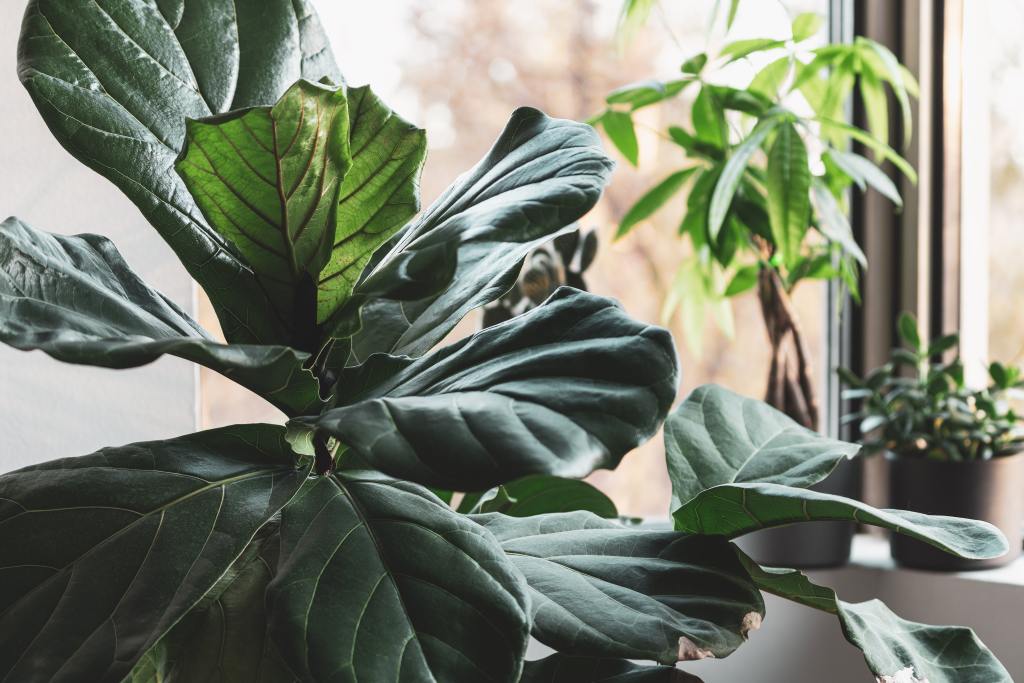Have you ever heard of Pamela Isley? Well, if you haven’t, let me tell you a little about her: she’s someone who cherishes her friends, is a staunch defender of all things plants and has the most spectacular green thumb, and, in some incarnations, has even given her life to save others. Despite this, she’s been thrown into an insane asylum on multiple occasions and is often times one of the targets of a very well-known caped crusader.
But why??
It’s not her fault she has a better bond with plants than with people. If your father was abusive and killed your mother and then later in life one of your professors used you for a science experiment that forever altered your DNA, you’d be a little detached from humanity too!
Maybe you don’t know the name Pamela Isley but I bet you know her better by another name–Poison Ivy.

The name Poison Ivy tends to strike fear in the hearts of the people of Gotham, but let me tell you: it is undeserved. While food and water are among some of the things that are most important for human survival, you know what’s more important? Oxygen. You know what provides oxygen? Plants. Do you know who defends plants? (don’t say Swamp Thing) Poison Ivy.
When I was a kid, I believed that good and evil are black and white. If you’re not good, you’re evil, simple as that. But as I’ve gotten older, there are a few “villains” to whom I’ve come to relate, Poison Ivy being one of them. If there was a superpower I could have (and there are several I’d love to have), chief among them would be the power to bond with plants and harness their abilities.
You either die a hero or you live long enough to see yourself become a villain.
Harvey Dent
So, let me back up. I’m here to defend Ivy, not just gawk at her awesome superpowers as incredible as they may be.
It all started about 6 years ago (6 years exactly this upcoming May). I was living in an apartment that had a mold problem and, unfortunately for me, I just so happen to be allergic to mold the way most people are allergic to pollen. Allergy medications could only do so much. Cleaning excessively could only do so much. A lot of the time, both of these things failed me and I spent nights being unable to breathe. I’d have to step outside of the apartment just to get clean air into my lungs.
The landlord was aware of the problem and had tried things to remedy it. They would work for a while, but ultimately, things always went back to the way they were before. Unable to do much, I turned to Google to try to discern ways to improve the spore-infested air quality of my living quarters. What did Google unilaterally tell me to get?
Plants

Yes. Plants. In hindsight, a simple air purifier probably would’ve helped me, but this was not the result that Google gave me at the time. Up until that moment, I’d never had any plants. I’d had flowers, sure, but never plants. My grandmother had plants. My mother had plants. My aunts had plants. But not me. While I was extremely apprehensive at first, wanting, desiring, and collecting plants quickly grew on me. I’ve had a lot of additive and compulsive habits/hobbies over the years—video games, reading, crocheting, etc.—but I’ve never had one take over my life as much as having plants has.
Say what you want, but there are plentiful benefits to plants, both houseplants and outdoor plants. As a naïve child, I thought Poison Ivy was rather eccentric (Plants? There’s nothing cool about plants). As an adult who is still probably naïve but at the very least owns several (over 40) plants, I see Ivy’s side now. And today, in my defense of Pamela Isley (and also possibly myself because I’m starting to get crazy looks whenever I talk about plants), I am here to tell you why you need more plants in your life.

1. Plants are Vital to Survival
I feel like this should be apparent, but the more I talk to people, the more I realize that people don’t understand just how important they are to our survival. Yes, we need them for oxygen, but we also use them for food, they are important to medicine, they clean the air (which is separate from producing oxygen), and they just look pretty! Plants are necessary for many parts of our lives and humans, and unappreciative as we are, just don’t seem to realize it.
When I tell people that I first started collecting plants as a means to assuage allergy symptoms, they’re all equally shocked. I remember being pleasantly surprised when I learned that plants could help me, and then immediately feeling stupid that I didn’t realize it becuase it should’ve been apparent.
Beyond their air cleaning and oxygen providing capabilities, plants nourish us. We eat them in almost every meal. And before you start trying to tell me that you don’t eat fruits or vegetables and that you’re a carnivore I ask you this: what do you think your meat source eats?
Most of the animals that are eaten consume a plant/grain-based diet. Without plants, your food wouldn’t become food!!! Also, you most likely cook your food with spices and seasonings, aka PLANTS. So don’t tell me we don’t need or use them as nourishment.
Inside and out, we need plants to survive whether we realize it or not.
2. Plants are Healing
As mentioned before, plants are used in medicines. In my case, it wasn’t a medicine I digested, but was more of an external remedy of sorts. By purchasing plants to help purify the air, I was looking to heal and provide relief to my allergies. They helped, but the problem of the mold was worse than anyone could have realized and I hadn’t bought that many plants because I couldn’t afford to do so at the time. The point is they helped, but plants heal in more ways than that.
Many of our medicines exist thanks to plants–aspirin and various cancer treatments are examples of this. We also use plants to help calm us (chamomile tea, anyone?). And there are several plants we use in our skincare routines (I can’t live without my witch hazel). Some of us have eucalyptus hanging in our showers because it relieves congestion when combined with the steam. Aragorn used the athelas plant to help ease Frodo’s wound. Various plants, such as turmeric, can reduce inflammation. When I think of healing plants, I think of some mystical witch using sage and Palo Santo to clear the air of negative vibes.
Honestly, I could go on and on about ways plants heal us. I can see how it’s easy to overlook how beneficial they are, but it’s only so easy because we haven’t had to live without them. We take them for granted and this is one of the issues Pamela Isley has.

3. Plants Increase Productivity
It has been said that plants increase productivity. Sure, you could say that’s not a good enough argument, but I say how is it not? I’m not saying productive in the sense that you’re a hamster on a never-ending wheel. But in the sense that you have just a little bit more motivation or desire to work. From a mental and psychological standpoint, plants are just better. Imagine two workplaces. One is chock full of fluorescent lights and a simple white or gray wall. No, or few, windows. The other workplace has windows. Natural light–lots of it. Plants. Now, tell me where you’d rather work.
In a study, it was found plants significantly increased workplace satisfaction. They’ve also been said to increase creativity. So, if you’re not concerned about how well you’d work for someone else, plants can also help you work better for yourself.
4. Plants are Visually Stunning and Aesthetically Pleasing
If you tell me that you don’t think plants are pleasing to look at, I will tell you that you have no soul. Long before I ever purchased my first plant, I loved looking at them. And, seriously, who doesn’t? You don’t have to own a plant to acknowledge how gorgeous they are. Why do you think people buy houses with trees and green grass? They. Look. Nicer.
Even if you’re someone who only likes the look of flowers, it still counts. Plants invite an air of serenity and calm whenever you look at them, hence why I have so many now. I didn’t start out with the desire to have rooms full of plants, it just ended up that way. But, for me, it works out. I have never had a single person who has seen my plants have a negative thing to say about them. Usually, people are impressed by them and I get many compliments.

5. Plants are Rewarding
Ms. Isley gets it. Look at the above arguments and tell me plants aren’t rewarding. I will call you a liar. Taking it beyond what I’ve already mentioned, plants are rewarding in other ways. There is an indescribable joy when you have a plant that you’ve been caring for that not only is growing, but is thriving. Yes, it can be heartbreaking whenever it doesn’t work out (which is why I would love to have Poison Ivy’s powers), but when it does work out?? It’s an incredible feeling!
Plants have a habit of teaching their caregiver patience and humility. You think you know everything? Get a plant. You will learn how quickly you don’t know everything and then you’ll want to learn everything. You never quite learn everything about plants, but you do learn a lot. And the more you learn about plants, the more you learn you need to be humble.
Also, plants grow on their time. We can do our best to set them up for success but if they aren’t ready or willing, then it doesn’t matter what we want. You want that Pink Princess Philodendron to push out an extremely variegated leaf? Too bad. You want that nepenthes to produce a pitcher finally? Maybe next time. In knowing that you may not know everything a plant needs, you learn that you have to be patient in figuring it out.
We have it easy nowadays in the sense that we can look things up on the internet, but it wasn’t always so. Additionally, there’s a lot you can’t find on the internet, or at least not in time. For example, my African Violet was struggling and I couldn’t figure out why. I changed her lighting, her watering, her location. None of it mattered, she just wouldn’t act right. Finally, she started to severely decline right around the time I finally figured out what she needed. I was able to save some of her, but I’m basically starting over with her. But seeing her little baby progress has been extremely rewarding.
I have names for all of my plants. I talk to them. I sing to them (poorly). I love them. And when they send that love right back, it’s the greatest feeling in the world.
6. Plants Are Vital to Survival
I just need to say this again because I don’t think y’all heard me the first time! Air, medicine, food, mental stability–these are all things we need in order to survive. In the wild, plants help with water quality and stability. Also, they’re doing the most as it concerns our climate–they remove all the bad stuff from the air, people. Without them, where do you think our climate is going to be? They are a vital part of the ecosystem–many creatures need plants not just as nourishment, but also shelters.
It isn’t just our survival that depends on them.

So, tell me why Pamela Isley aka Poison Ivy, who thinks humans are being unnecessarily cruel to plants (they are) is considered a villain? Sure, her methods are unorthodox (by our standards), but it’s just the result of a few things she needs to unpack in therapy. Whenever she is on the side of the heroes, she’s easily one of the most powerful beings out there. In today’s society, we need more people like Pamela Isley.
I remember being a kid and, upon learning the term “Tree-hugger” and its definition, promptly laughed at anyone who might have fallen into that category. Now? My younger self would be laughing at who I have become and my adult self smiles at the naivete of my younger self. We all need more plants in our lives.
And we could all stand to be a bit more like Poison Ivy.



1 thought on “In Defense of Pamela Isley”